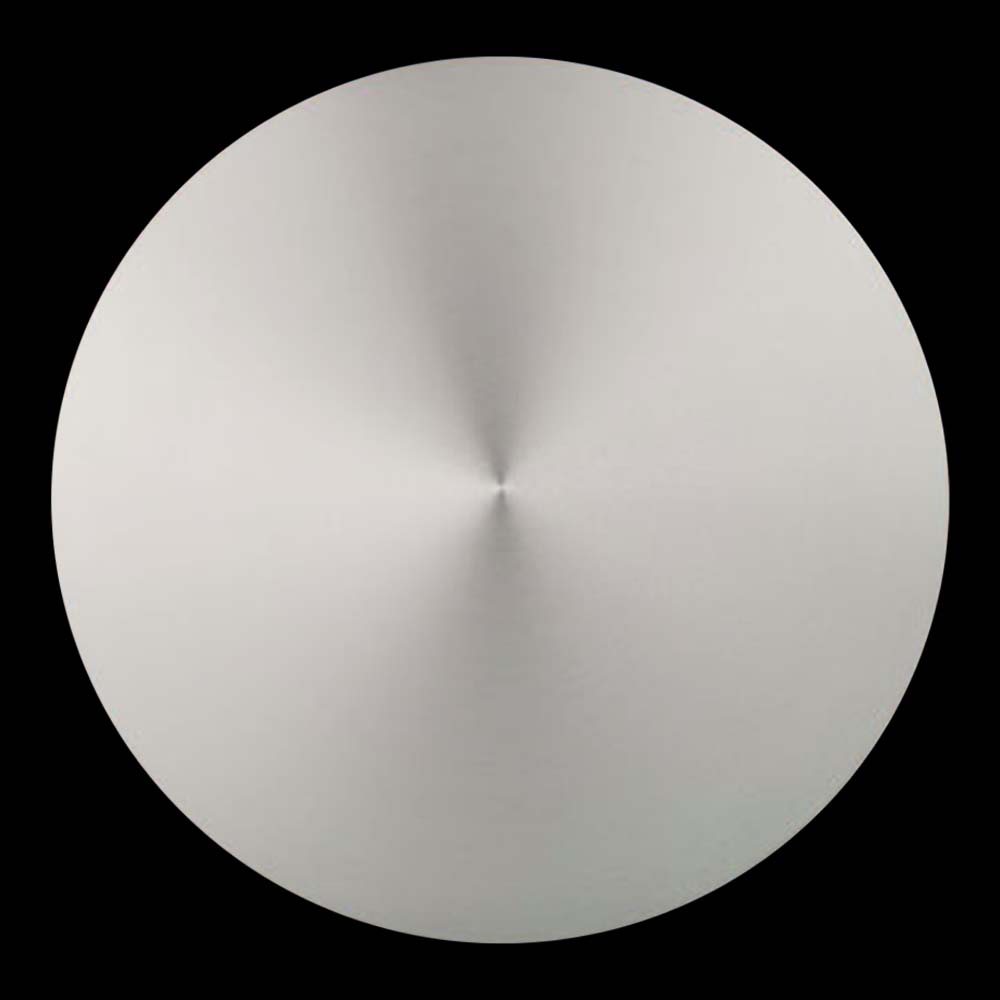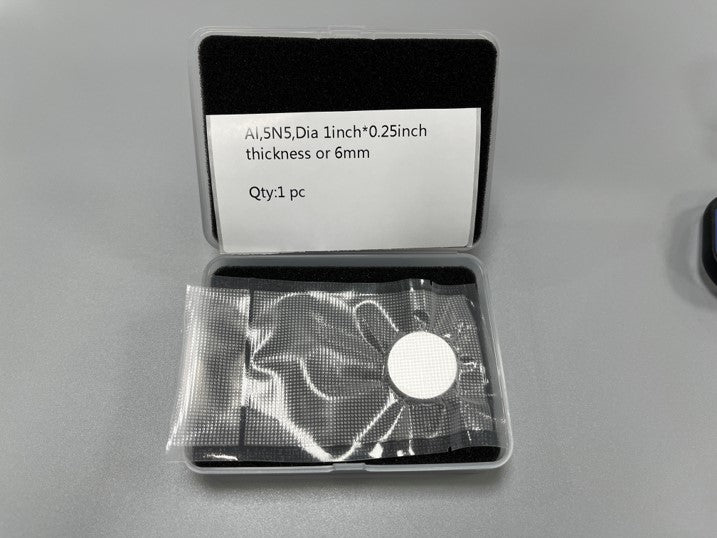Target Materials
Aluminum (Al) PLD Target
Aluminum (Al) PLD Target
Couldn't load pickup availability
| Material | Aluminum, Aluminium |
| Formula | Al |
| Purity | 99.995% |
| Typical Substrates | Glass, Silicon, Metal |
| Related Materials | Au, Cu, Pd, Pt Ag |
Aluminum (Al) Targets for PLD
Introduction to Al Thin Films
Aluminum (Al) is a soft, lightweight, and ductile metal that is widely used in thin film form for a variety of applications. Al thin films have a high electrical conductivity, good thermal conductivity, and excellent corrosion resistance, making them suitable for use in microelectronics, optoelectronics, and packaging applications. Al thin films also have good adhesion to substrates and can be easily patterned using lithography techniques, making them useful for the fabrication of microelectronic devices.
Properties of Al Thin Films
Al thin films have a high electrical conductivity, good thermal conductivity, and excellent corrosion resistance, making them suitable for use in microelectronics, optoelectronics, and packaging applications. Al thin films also have a low coefficient of thermal expansion, making them compatible with silicon substrates. In addition, Al thin films can be easily patterned using lithography techniques, making them useful for the fabrication of microelectronic devices.
Applications of Al Thin Films
Al thin films have a wide range of applications in various fields such as microelectronics, optoelectronics, packaging, and aerospace. Al thin films are used as interconnects and contact materials in microelectronics. Al thin films are also used as reflectors, conductive layers, and bonding materials in optoelectronics. In addition, Al thin films are used as barrier layers and protective coatings in packaging and aerospace applications.
Comparison to Other Metals
Compared to other metals such as copper, gold, and silver, Al has a lower resistivity and a lower cost, making it more suitable for use as interconnects and contact materials in microelectronics. However, Al has a lower electrical conductivity than copper, which limits its performance in some high-speed applications. In addition, Al has a lower reflectivity than gold and silver, which limits its performance in optoelectronic applications.
Crystal Structure of Al
Al has a face-centered cubic crystal structure with a space group of Fm-3m. The material consists of a lattice of Al atoms that are surrounded by a sea of delocalized electrons. The crystal structure of Al is relatively simple, which makes it easy to deposit as a thin film using sputtering techniques.
Similar Thin Film Materials to Al
There are several other materials that are similar to Al in terms of their properties and applications. These include:
- Cu (copper)
- Ag (silver)
- Au (gold)
- Ni (nickel)
- Ti (titanium)
Materials
Materials
Shipping & Returns
Shipping & Returns
Dimensions
Dimensions
Care Instructions
Care Instructions


-
Free Shipping
Wherever you are, get free shipping on orders from Target Materials
-
High Quality Packaging
All our targets are vacuum packed, sealed and protected so they arrive with you exactly how they left from us.


